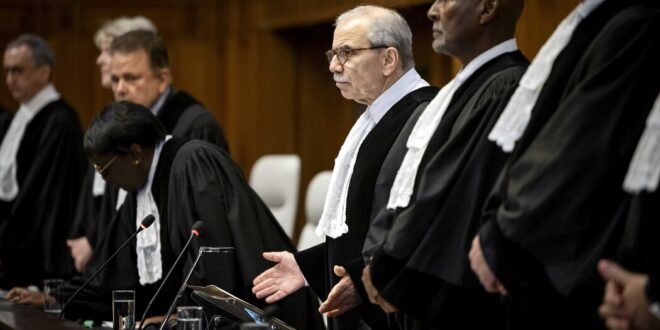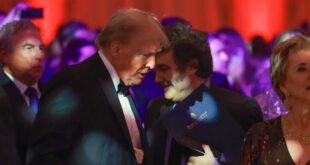Lebanon’s fractured Parliament named Nawaf Salam as prime minister on Monday, handing the country’s political reins to the prominent diplomat and international jurist as Lebanon emerges from a devastating war and attempts to recover from a dire economic meltdown.
Mr. Salam was endorsed by a majority of lawmakers in the country’s 128-seat Parliament on Monday, after which Lebanon’s newly elected president, Joseph Aoun, asked him to form a government. Mr. Salam is currently serving as the head of the International Court of Justice, the United Nations’ top court, and previously served as Lebanon’s ambassador to the United Nations.
The selection of Mr. Salam was widely seen as a major political blow to Hezbollah, the Lebanese militant group and political party that has served as the real power in Lebanon for decades. For much of that time, almost no major political decision could be made without Hezbollah’s backing.
But the vote on Monday offered a rebuke to that status quo, elevating Mr. Salam — whom Hezbollah opposed — and delivering a stunning defeat to the Hezbollah-backed candidate. For many, it underscored Lebanon’s new political reality: Since emerging from a 14-month war with Israel, Hezbollah no longer has an iron, unshakable grip on Lebanon’s state.
In just over two months, Israel assassinated the group’s top leaders. The war left billions of dollars in damages across the country. Hezbollah also lost its main ally in neighboring Syria, the dictator Bashar al-Assad, who was toppled by rebels last month. And its patron, Iran, is now on its back foot after its web of anti-Israel militias has unraveled. Those developments have opened a new political chapter in Lebanon, analysts say.
“The whole political dynamic has changed,” said Sami Nader, the director of the Political Sciences Institute at Saint Joseph University of Beirut. “It’s a total collapse of the old modus operandi.”
The Lebanese state is made up of a multitude of factions and sects that jockey for power and influence. For years, it has been controlled by a weak and ineffectual caretaker government. Hezbollah was both a part of that government and the dominant political and military force, effectively guiding almost all of the country’s major decisions.
In recent days, Lebanon’s shifting political sands have been laid bare in a flurry of political developments that have underscored just how much political ground Hezbollah has lost.
Last week, Lebanon’s Parliament elected Mr. Aoun as the country’s new president — overcoming more than two years of political gridlock that critics had attributed to Hezbollah. Then on Monday, Mr. Salam — whom Hezbollah had repeatedly blocked from becoming prime minister in recent years — gained the support of 85 members of the country’s 128-seat Parliament. The departing prime minister whom Hezbollah supported, Najib Mikati, secured only nine votes. Thirty-five ballots were cast blank.
After the vote, a senior Hezbollah lawmaker, Mohammad Raad, told reporters at a news conference that Hezbollah had “extended its hand” by supporting the election of Mr. Aoun, only to have its “hand cut” on Monday, according to local media reports.
The new government that is emerging in Lebanon also reflects the realignment of power dynamics across the Middle East, analysts say. The era of Iran’s sway over Lebanon appears to be over, they say, creating an opening for Gulf countries that had vied with Iran unsuccessfully in Lebanon for years.
Saudi Arabia and Western countries have thrown their support behind Mr. Salam and Mr. Aoun, and many within Lebanon hope that the new government they lead will bring an influx of funds from those countries as Lebanon grapples with a billions-dollar bill for reconstruction from the war between Hezbollah and Israel.
“The Arab countries are on board, there’s a possibility of Lebanon being welcomed back to the Arab family,” Mr. Nader said. “It’s an unbelievable change. You can feel the weakening of Iran.”

